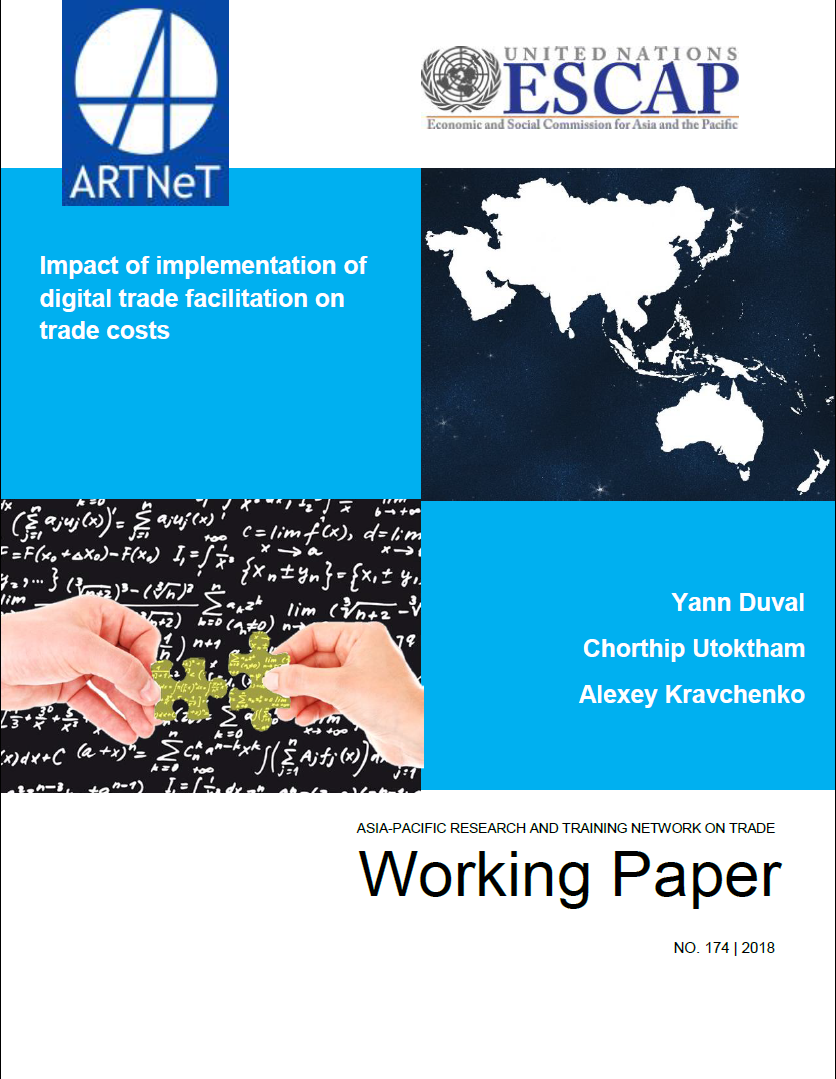Impact of implementation of digital trade facilitation on trade costs

This study estimates the effect of trade facilitation measures implementation on trade costs in Asia and the Pacific using data from the United Nations Global Survey on Trade Facilitation and Paperless Trade Implementation. Impact of different sets of measures are considered, from a basic set of measures to ensure compliance with the World Trade Organization Trade Facilitation Agreement (WTO TFA) commitments, to a full set of digital trade facilitation measures. The analysis shows that full implementation of both binding and non-binding measures in the WTO TFA is associated with an average 15% trade cost reduction in Asia-Pacific. On the other hand, full implementation of binding and non-binding WTO TFA measures together with other paperless and cross-border trade facilitation measures (digital trade facilitation) is projected to decrease trade costs by more than 26%, cutting international transaction costs in Asia and the Pacific by about $0.6 trillion annually. The analysis also confirms that there are significant reductions in trade costs associated with trade partners’ implementation of trade facilitation measures. This shows that economies which already have high rates of trade facilitation implementation have strong incentive to encourage and support their trading partners in implementing trade facilitation. Further facilitation of trade in these economies will involve developing legal and technical frameworks to support cross-border paperless trade, i.e., enabling the electronic exchange and legal recognition of trade data and documents between public and private actors located in different countries along the international supply chain, as envisaged in the recently adopted regional UN treaty on cross-border paperless trade facilitation, the Framework Agreement on Facilitation of Cross-border Paperless Trade in Asia and the Pacific (FA-PT).
